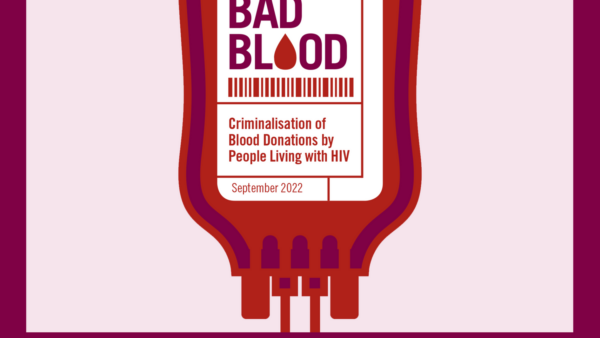Overview
Costa Rica maintains general disease laws which have the potential to criminalise HIV transmission. As of 2023, proposals to introduce a new HIV-specific law were under consideration.
In 1998 Costa Rica introduced Law No. 7771 of April 29, 1998, General Law on HIV/AIDS, which regulates those living with HIV. Article 52 of the law inserted into the Penal Code a provision which criminalises the spread of infectious and contagious diseases.
Article 271 (originally Article 262 prior to renumbering) of the Penal Code criminalises anyone who knows they are living with an ‘infectious-contagious disease’ that results in serious risk to life, physical integrity or health, and who infects another person through a semen, breast milk, tissue, organ or blood donation, having sexual intercourse with another person without informing them of their status, or using invasive or sharp objects that they have previously used. The penalty under this article is imprisonment for three to sixteen years (see our report, Bad Blood, for a global analysis of the criminalisation of blood donations).
This provision does not explicitly mention HIV, however, its introduction through an HIV-specific law would suggest lawmakers wrote this law in order to apply it to cases of HIV transmission. Actual transmission must take place for the purposes of this article.
Law No. 7771 also created a number of protections and obligations on those living with HIV. For instance, it provides for access to healthcare (Article 7), labour (Article 10) and education (Article 11). There is also a right to confidentiality under Article 8, however this provision states that there is an obligation on those living with HIV to communicate their status to their sexual partners. Where the person refuses or is unable to do so, Article 17 requires healthcare personnel to inform their sexual partners, while respecting confidentiality. Additionally, Article 14 allows for mandatory testing in certain situations including for criminal or divorce proceedings, following a judicial order.
The Penal Code also contains another general disease provision under Article 130 which criminalises the transmission of ‘venereal diseases’ where the person knows they are suffering from the disease. This provision carries a penalty of one to three years’ imprisonment and is only prosecutable at private request.
In August 2023, Positivxs Organisation, a Costa Rican association of people living with HIV and other STIs, responded to legislative proposals being discussed which would introduce a new HIV-specific law targeting intentional HIV transmission. Under these proposals the penalty would be equivalent to murder. Positivxs Organisation urged policymakers to resist pressure to introduce an HIV-specific law, pointing to evidence that they are ineffective against the spread of HIV.
There have been no known prosecutions for HIV transmission in Costa Rica.
Laws
Penal Code
Article 130. Venereal contagion
Whoever, knowing that he suffers from a venereal disease, infects another, will be punished with prison from one to three years. This fact is only prosecutable at private request.
Article 262. Propagation of infectious-contagious diseases
Prison will be imposed from three to sixteen years to those who knowing that they are infected with an infectious-contagious disease that involves serious risk to life, physical integrity or health, infect another person, in the following circumstances:
a) Donating blood or its derivatives, semen, breast milk, tissues or organs.
b) Maintaining sexual relations with another person without informing him of the infected condition.
c) Using an invasive, sharp or puncture object that you have previously used on it. “
Law No. 7771 of April 29, 1998, General Law on HIV/AIDS
Article 8. Confidentiality
With the exceptions contained in the legislation, confidentiality is a fundamental right of HIV-AIDS carriers. No one may, publicly or privately, refer to the suffering of this disease, without the prior consent of the patient.
Health personnel who know the condition of a patient infected with HIV-AIDS, will keep the necessary confidentiality regarding the results of diagnoses, consultations and the evolution of the disease.
The HIV-AIDS carrier has the right to communicate her situation to whoever she wishes; however, the health authorities must inform you of your obligation to communicate this to your sexual contacts and advise you, in turn, of your criminal and civil responsibilities in case of contagion.
Article 17. Notification to the patient
The treating physician or the trained health care personnel who informs a patient about their HIV infection condition, must indicate, in addition to its infectious and contagious nature, the means and ways of transmitting it, the right to receive assistance, adequate and comprehensive, in health and the obligation to inform their sexual contacts.
For this purpose, the treating physician or health personnel must provide the HIV-infected person with the necessary information that must be provided to their contacts and the way to do so.
When the patient is unwilling or unable to communicate the result of her diagnosis at least to her current sexual contacts, the health care personnel shall take the possible steps to achieve said notification.
The notification must be made in such a way as to respect the confidentiality of the persons involved.
Article 14. Exceptional authorisation for the test
The diagnostic test for HIV infection is not mandatory, except in the following cases:
a) When there is, according to the medical criteria that will appear in the clinical record, the need to carry out the test exclusively to attend to the health of the patient, in order to have a better basis for treatment.
b) When required for criminal proceedings and divorce purposes, prior order of the competent judicial authority.
c) When it comes to donating blood, blood products, breast milk, semen, organs and tissues.
In the above cases, the test results will be used confidentially.
Acknowledgements
Our thanks to Australian law firm Hall & Wilcox for their research assistance to confirm current relevant legislation.
HIV Justice Network's Positive Destinations
Visit the Costa Rica page on Positive Destinations for information on regulations that restrict entry, stay, and residency based on HIV-positive status, as well as access to HIV treatment for non-nationals.

